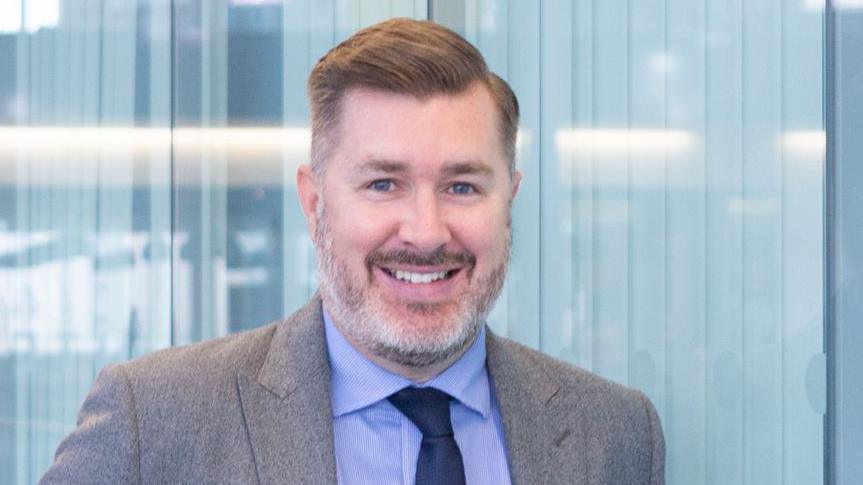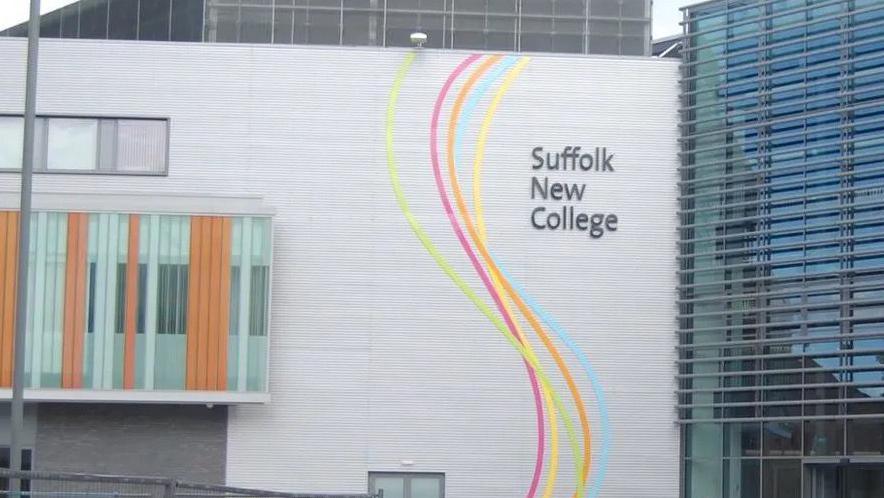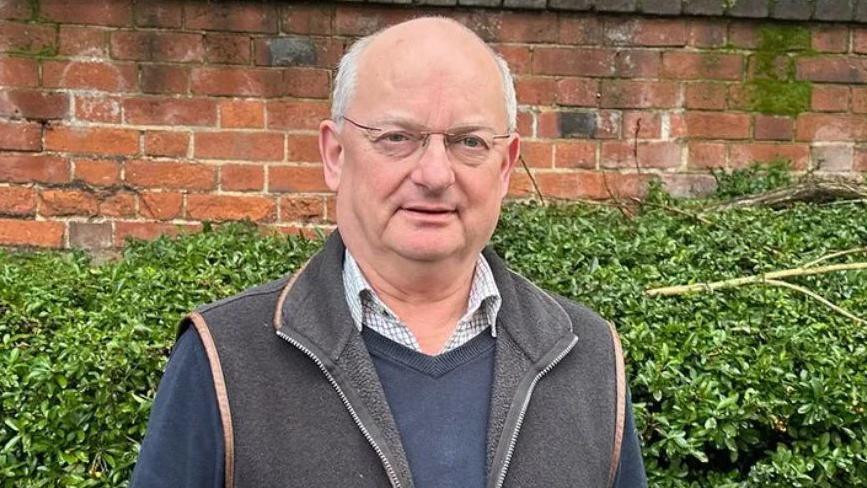'Colleges need investment in Autumn Budget' - head

Alan Pease is one of 170 college heads calling for the government to use the Autumn Budget to invest in further education
- Published
A college principal has called on the government to provide funding to address staff retention issues and improve education for learners.
Alan Pease, of Suffolk New College, external in Ipswich, is one of 170 college heads to have signed a letter calling for the government to use the Autumn Budget to address issues within further education.
Mr Pease said his college played a vital role in educating the future workforce of major infrastructure projects in the region and needed investment.
A spokesperson for the Department for Education, external said it planned to invest over £600m in further education over the next two years but decisions on further funding would be taken as part of the spending review.
Mr Pease explained a large issue further education (FE) institutions faced was staff retention.
On average, he said further education lecturers were paid £9,000 less than school teachers which had caused some of his staff to leave.
"When you look at the disparity between our FE lecturers and with school teachers, we just felt we needed to put pen to paper and raise this issue and plea that the chancellor does something about it," he told BBC Radio Suffolk.
"Many of our staff come from the various sectors they've worked in, so not only are they qualified teachers, they bring real industry experience to their roles."
The government said it would deliver a national FE recruitment campaign to raise the profile of the sector while supporting industry professionals to enter the FE workforce.
As well as this Mr Pease said colleges lost large sums of money to VAT that schools did not pay.
However, the government explained if FE colleges provided education for free, the provision was outside the scope of VAT.

Suffolk New College and four other colleges in Suffolk and Norfolk educate more than half of all young people aged 16 to 19 in the region
Mr Pease said the college suffered "real practical impacts" due to other issues around funding from the Education Skills and Funding Agency, external.
He said if the college recruits more learners than the funding allocates it does not get compensated for this until the next academic year.
"If we had some additional capital it would be spent on tables and chairs because some of our classrooms are bursting at the seams," Mr Pease said.
"There's a real practical element of needing to have furniture to accommodate the bigger group sizes.
"Then there's the academic impact on our staff of bigger group sizes, more marking, greater work load.
"But we've not got the money in year to re-invest into supporting that growth, it's a real challenge."
Suffolk is at the centre of a number of large infrastructure projects including the Sizewell C nuclear plant station that is still waiting a final investment decision from the government.
Mr Pease explained his students could be at the forefront of helping run sites like this in the future and therefore should be invested in.
'Vital role'
A spokesperson for the Department for Education said: "We recognise the vital role that FE teachers and providers play in empowering learners to seize opportunity and drive growth, which is why we are investing over £600m in further education over the next two financial years.
"Decisions on future funding for further education will be taken as part of the Spending Review."
Get in touch
Do you have a story suggestion for Suffolk?
Follow Suffolk news on BBC Sounds, Facebook, external, Instagram, external and X, external.
Related topics
Stories like this
- Published30 September 2024

- Published5 September 2024

- Published30 January 2024
